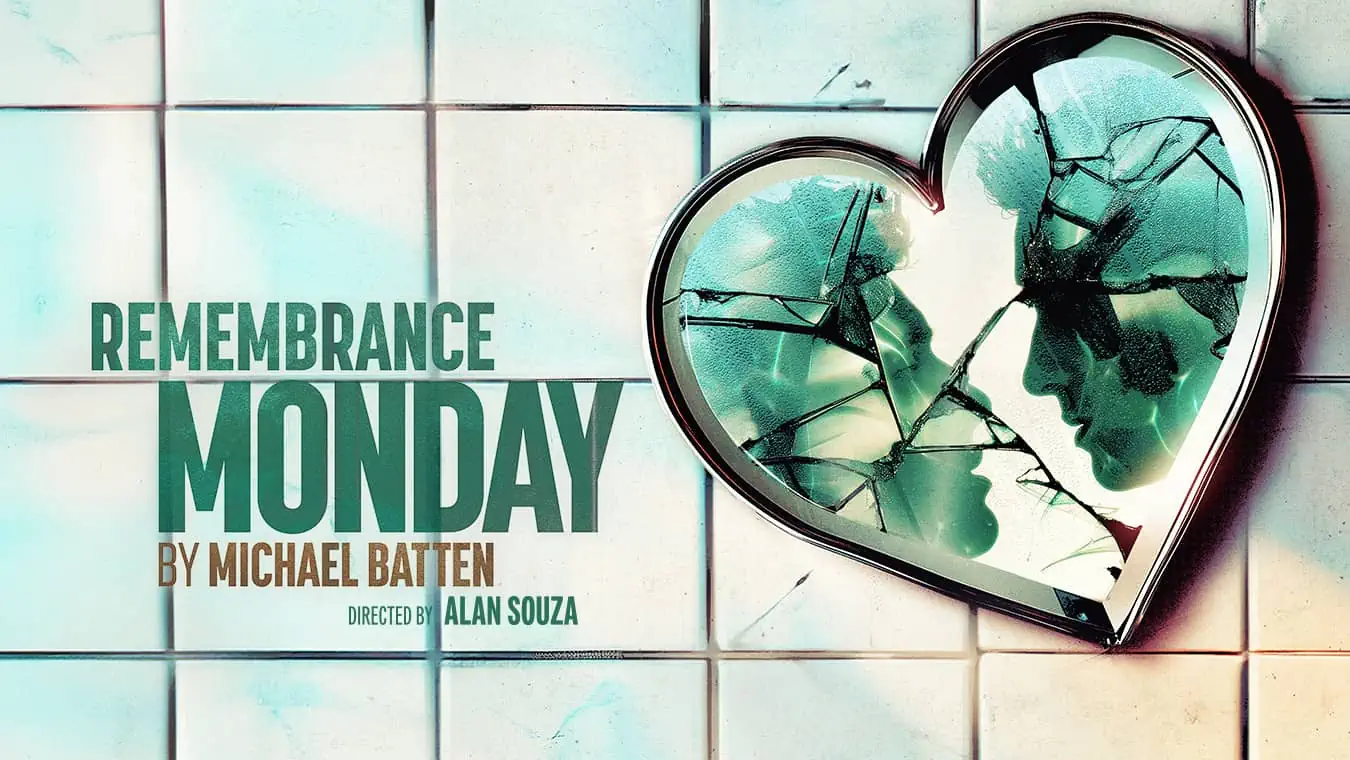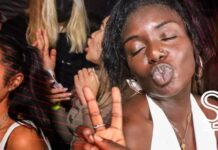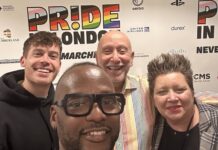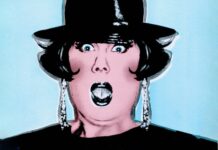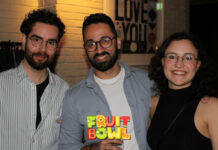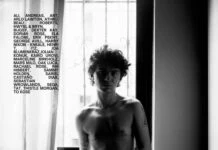UK Black Pride will be celebrating its tenth festival this year. Chris Godfrey speaks with the carnival’s director, Phyll Opoku-Gyimah, about why it’s still such an important event in the LGBT calendar.
Hey Phyll, how is preparation going for UK Black Pride 2015?
You know what, it’s always exciting because you get so many people from the community emailing saying they want to perform, they want to act, they want to do some spoken word, they want to volunteer. And this year we’ve had quite a number of lone people say they want to come but it’ll be their first pride and they don’t want to be by themselves.
So this is great! We’ve got them helping and staffing the stall for Stonewall, or working with St Mungo’s just so their journey in terms of their very first pride is one that feels safe to them, where they don’t feel isolated, and one where it’s exciting and they can have a shared commonality with others who they wouldn’t have necessarily met.
For someone who’s never been before it will feel like a place they’ve been before because everybody is so welcoming, there’s no drama, there’s lot’s of excitement, great food and drink (if they do drink) and entertainment in abundance. But importantly they have the feel of family where they won’t feel lonely.

Well, there will be more people for a start! There’s more love and passion and drive for people to come together to come collectively to do more. We’ve noticed over the years more people have bought into the idea that there should be a space for BME people to celebrate their achievements and their friends. So let’s get behind it and support it. Because we understand that solidarity is important. It’s about learning and if we don’t learn then we don’t grow. And that’s probably what will be the difference.
Why do you think there’s been this surge in popularity?
When we first started people were like: ‘oh my god, how bloody dare you have a black pride, that’s really racist’. When clearly I can’t be racist! But I think that where we’ve got the next generation coming up, they’re really free to be who they want to be in comparison to the times when I was coming out.
There’s more of a space for people to be out, without fear of major discrimination. Don’t get me wrong I’m not being complacent, there’s still a lot of discrimination that goes out on towards the LGBT community, but there’s also a lot of homophobia and Islamaphobia for people that carry those different intersections of who they are.

Well, I skim-read it but having spoken to some of the guys in our community they said it’s true, it’s out there. Some have said they’ve always had a good time when they’ve gone out and never had any problems. But I think that may be few and far between. I think a lot of BME men have experienced real stereotypes and stigmas around who they are.
There’s a reason why UK Black Pride exists, there’s a reason why we have self organised groups that support BME gay men. And if we didn’t have those groups it would mean we’re living in an ideal world. So there needs to be a space to talk about gay people who may be disabled, gay people who may be BME, or women BME who are suffering certain forms of discrimination out there. Even within our community where we claim to understand marginalisation.
We must never try to out-trump each other with our disadvantage within society at large. But it’s important we bring our whole, true authentic self to the table when we talk about what we need and what our aspirations are. Maybe one day there won’t be a need for a Black Pride, but until then we’re going to continue growing and growing.
So how have you grown and what have you learnt in your time with UK Black Pride?
That I’ve aged! I think I’ve learnt that every individual is absolutely instrumental in making UK Black Pride successful. I’ve learnt tonnes about the queer community, I’ve learnt that it’s important that we have allies, that we’re not talking to ourselves, that we’re working side-by-side with our white brothers and sisters who in turn will help us challenge any form of racism and discrimination that affects different groups of people.
I love looking around on the day when everyone’s dancing, eating food, sharing space, networking or forming relationships, which will last for two minutes, two years or a lifetime. Last year on stage we had a rabbi, an imam, a Christian, an atheist and a Buddhist and they led the one-minute silence for all the people we had lost here and abroad due to LGBT discrimination. To see that on stage was powerful to me.
• UK Black Pride is a free-entry event and will be held on Sunday 28th June in South London’s Vauxhall Pleasure Gardens.


